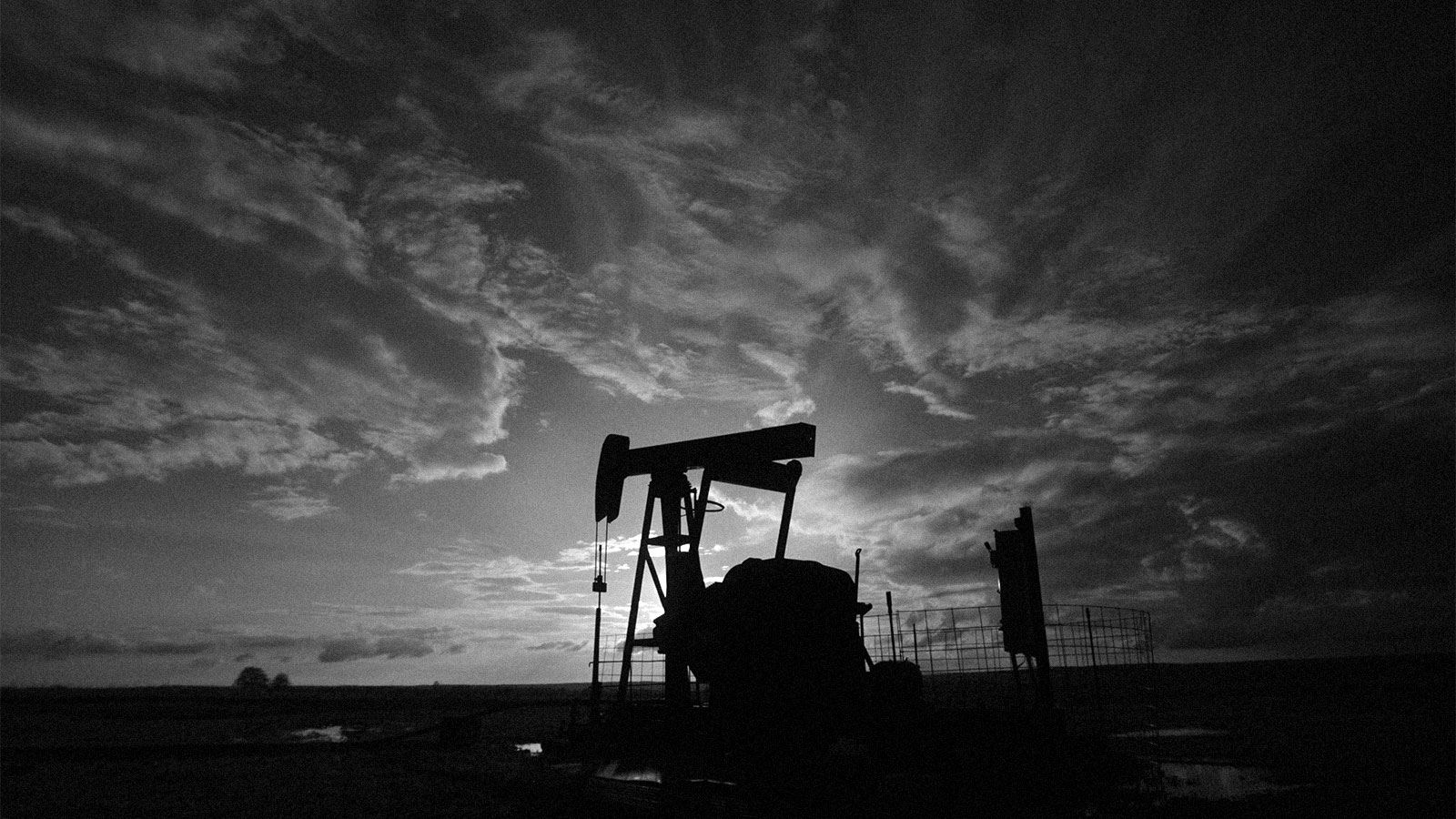
A new legal theory suggests that oil companies can be sued for every type of murder in the United States except first-degree murder.
The idea of ”climate murder” is gaining attention in law schools and district attorneys’ offices across the country. A paper published in Harvard Environmental Law Review last week argues that fossil fuel companies “have been killing members of the public at an accelerating rate.” It says that oil giants’ awareness that their pollution could have deadly consequences fits firmly into the definition of murder, which, in its basic form, causes death with a “punishable mental state.” In other words, the case can be made that oil companies knew what they were doing.
“It sparks a lot of conversation,” says Aaron Regunberg, senior policy advisor at the advocacy group Public Citizen. After discussing the idea with elected officials and prosecutors, Regunberg said, many of them moved from “‘Oh, that’s crazy’ to ‘Oh, that makes sense.'”
Around start the 1970s, oil companies like Exxon understood the dangers that burning fossil fuels would unleash—unprecedented warming that would make parts of the globe “less habitable,” submerge coastal cities, and lead to widespread drought and mass starvation. But instead of switching away from coal and oil, they doubled down and worked to block legislation to reduce greenhouse gas emissions and spread doubt about the science of climate change. Today, with atmospheric CO2 climbing to levels not seen before 14 million years ago the foretold consequences began to dawn. Since the beginning of the 21st century, climate change has killed approx 4 million peopleaccording to one conservative estimate.
By 2100, the same number of people could be killed each year by the effects of climate change, according to the new paper by David Arkush, the director of Public Citizen’s climate program, and Donald Braman, a law professor at George Washington University. “[T]the magnitude of the fatality is so great that, in the annals of crime, it may eventually dwarf all other homicide cases in the United States combined,” they write.
Criminal cases are usually brought against individuals, but Regunberg says there is a strong argument to apply it more widely. “This is supposed to be about protecting us from dangerous actors who would harm our communities. What if we were actually using this system to protect us from dangerous corporate actors who are doing untold harm?”
Murder opens a new flank in the strategy to bring climate change into the courts. Climate litigation is now in its “third wave,” according to Anthony Moffa, a professor at the University of Maine School of Law. The first lawsuits sought to force power companies to federally limit their emissions public nuisance claimsa strategy that the Supreme Court shot down in 2011. Then people started suing the USA and state governments using the argument that they have a duty to protect their citizens from climate change. The approach paid off last year, when young climate activists won a suit against Montana who claimed that the state’s failure to assess climate risks in approving fossil fuel projects violated their constitutional right to a healthy environment.
That phase also includes a flood of climate lawsuits brought against oil companies in state courts using laws meant to protect people from deceptive advertising, and those cases eventually move closer to trial after years of delays. Now the strategy has expanded to include racketeering lawsuitsusing the laws that the Mafia destroyed against Big Oil, and possible criminal cases including murder or reckless endangerment.
Arkush and Braman’s paper suggests that all forms of murder are on the table except for first-degree murder, which requires premeditation. One option is “involuntary manslaughter,” or engaging in reckless conduct that causes death, even if unintentional. “Negligent manslaughter” is similar, but for negligent conduct. There is also “depraved heart murder,” which requires you to engage in conduct where you knew there was a substantial risk that someone would be killed. Other variants include “felony murder” and “felony homicide.” Criminal law varies between states, so an attorney general or district attorney’s approach will depend on the jurisdiction.
Murder cases can be a powerful force in holding oil companies accountable and forcing them to change their polluting ways. “Where harmful law simply praises harmful behavior, criminal law prohibits it—and provides tools to stop it,” Arkush and Braman wrote in the Harvard Environmental Law Review article. A successful lawsuit could result in courts requiring fossil fuel companies to restructure as “public benefit corporations” that balance profits with a commitment to the public interest, replace their boards with new members, or make legally binding commitments to stop certain practices. let go
To promote the idea of ”climate murder,” Public Citizen has organized panel discussions in recent weeks at law schools including Yale, Harvard, the University of Pennsylvania, New York University and the University of Chicago. Another panel will be held Monday at Vermont Law School. Public Citizen is also looking into hosting mock trials to see how jurors might react to these types of cases and what evidence they find compelling.
“There are a number of prosecutors’ offices that seem interested in seriously considering these legal theories,” Regunberg said. “They understand that climate disasters — extreme heat, wildfires, floods and more — put their communities at risk, and if there’s a way to stop criminal reckless behavior that contributes to these threats, they’re going to explore that possibility.”
The idea was embraced by Sharon Eubanks, who led the United States racketeering lawsuit against tobacco companies in 2005, in which the court found that companies conspired to deceive the public by covering up the health hazards of smoking. “There were a lot of people who said we were crazy to load big tobacco with racketeering and that we could never win,” Eubanks said The guardian. “But you know what? We did win. I think we need the same kind of thinking to deal with the climate crisis.”
So why has no one seriously considered suing oil companies for murder until now? Recent years have brought advances in science linking climate change to extreme weather events and quantify how corporate emissions fueled disasters such as wildfires, which paved the way for these types of cases. Still, the need to include attribution science adds a layer of complexity that was not present for similar litigation against tobacco or opioid companies, according to Moffa.
And then there’s the fact that prosecutors are reluctant to take corporations to court with criminal charges. The first time a corporation was charged with manslaughter under a criminal statute was in 1904, when a steamship owner was convicted after his ship caught fire and drowned 900 passengers, but the legal strategy never really took off. “So then to say: ‘Why have they never done this in the environmental law?’ They didn’t really do it in virtually any context,” Moffa said.
In their paper, Arkush and Braman argued that fossil fuel companies acted as if they were above the law. “Under a plain reading of the law in jurisdictions across the United States, they are committing mass murder,” they conclude. “Prosecutors must act accordingly.”






